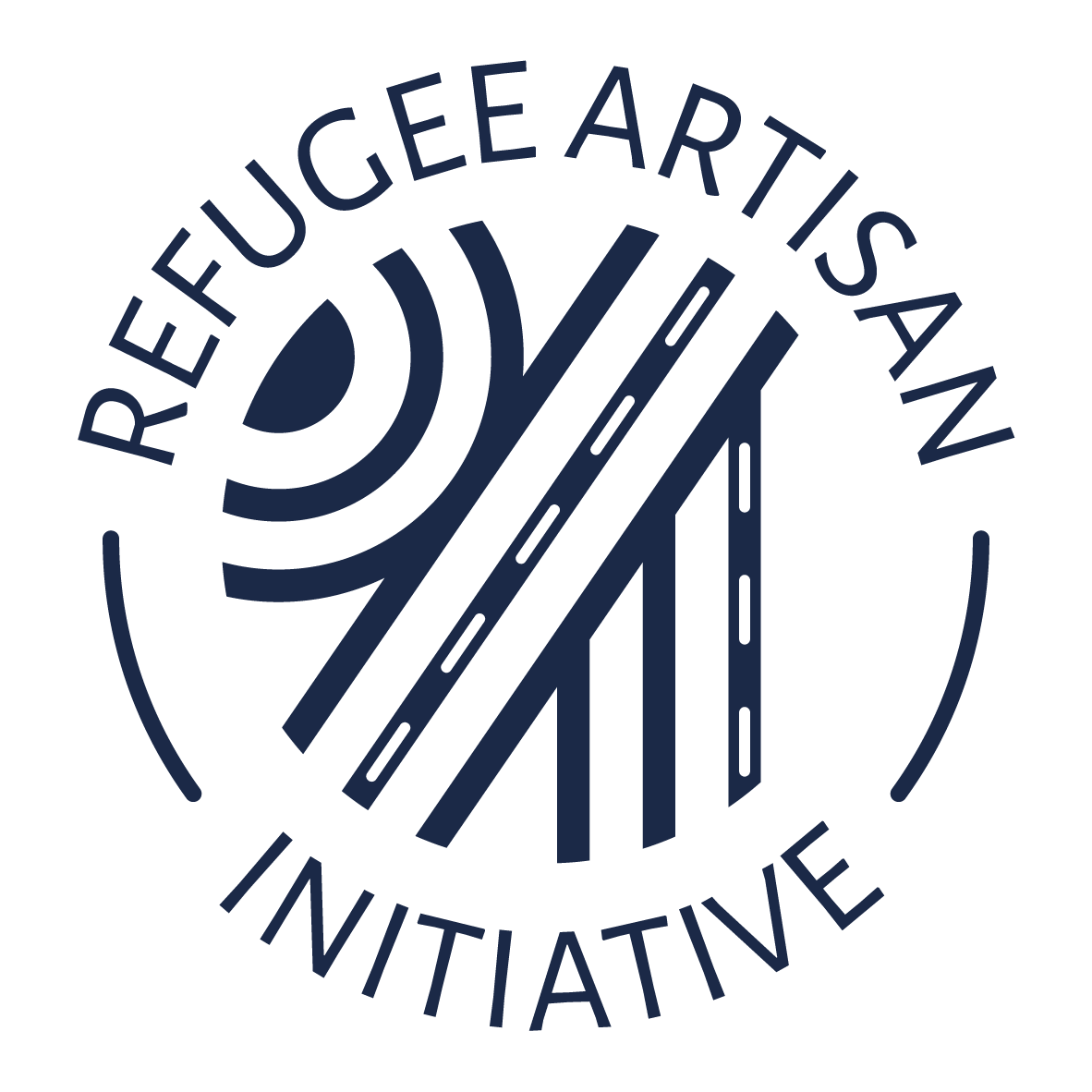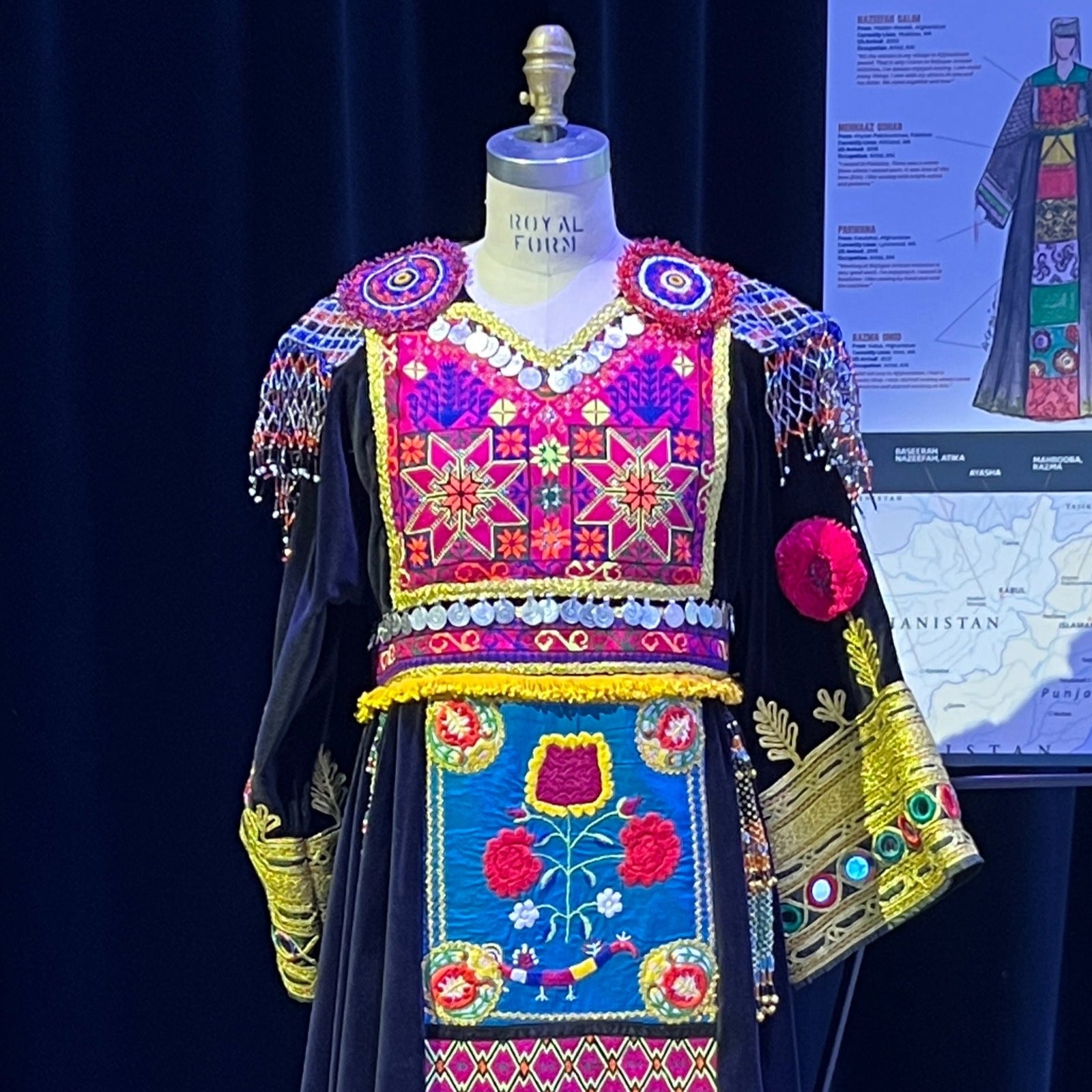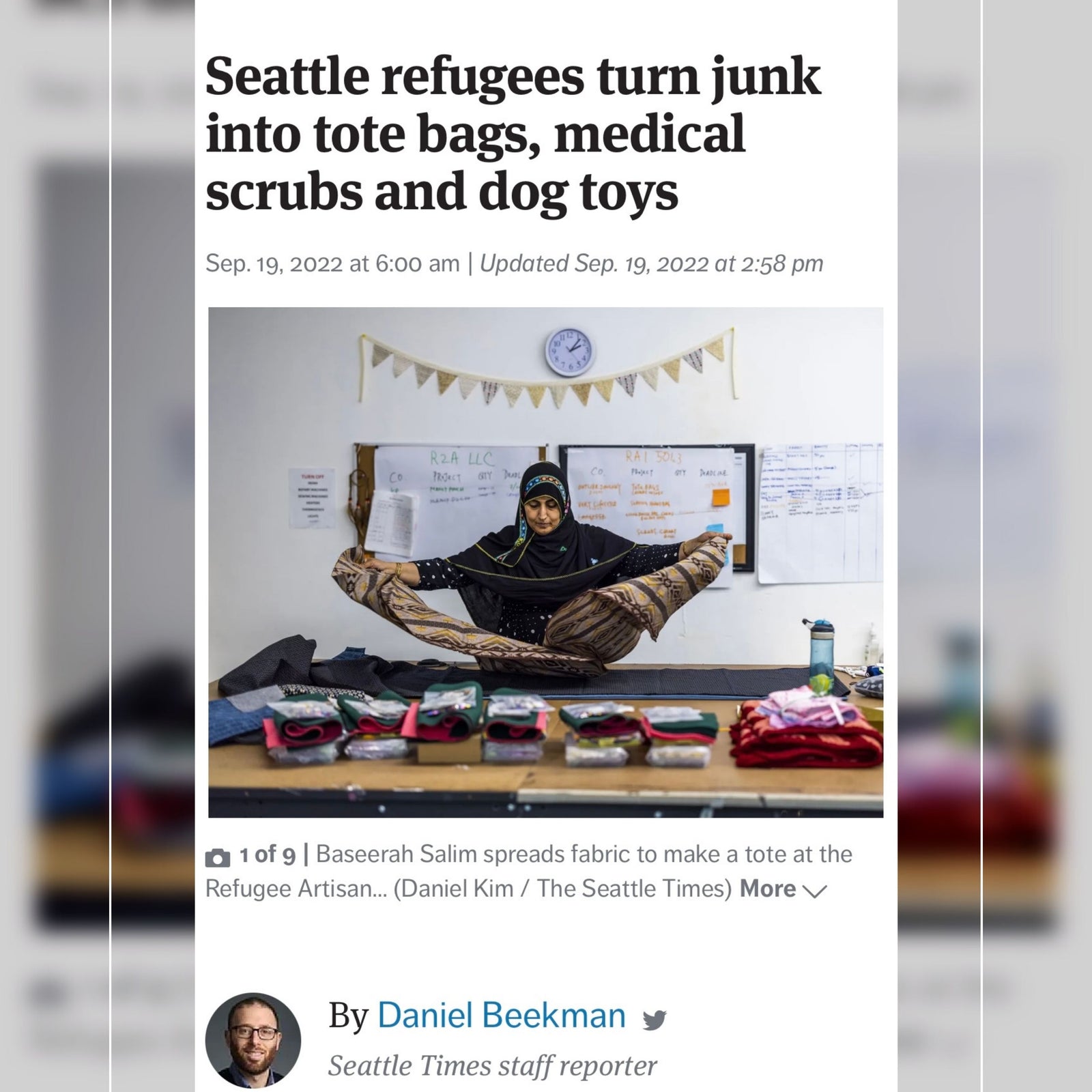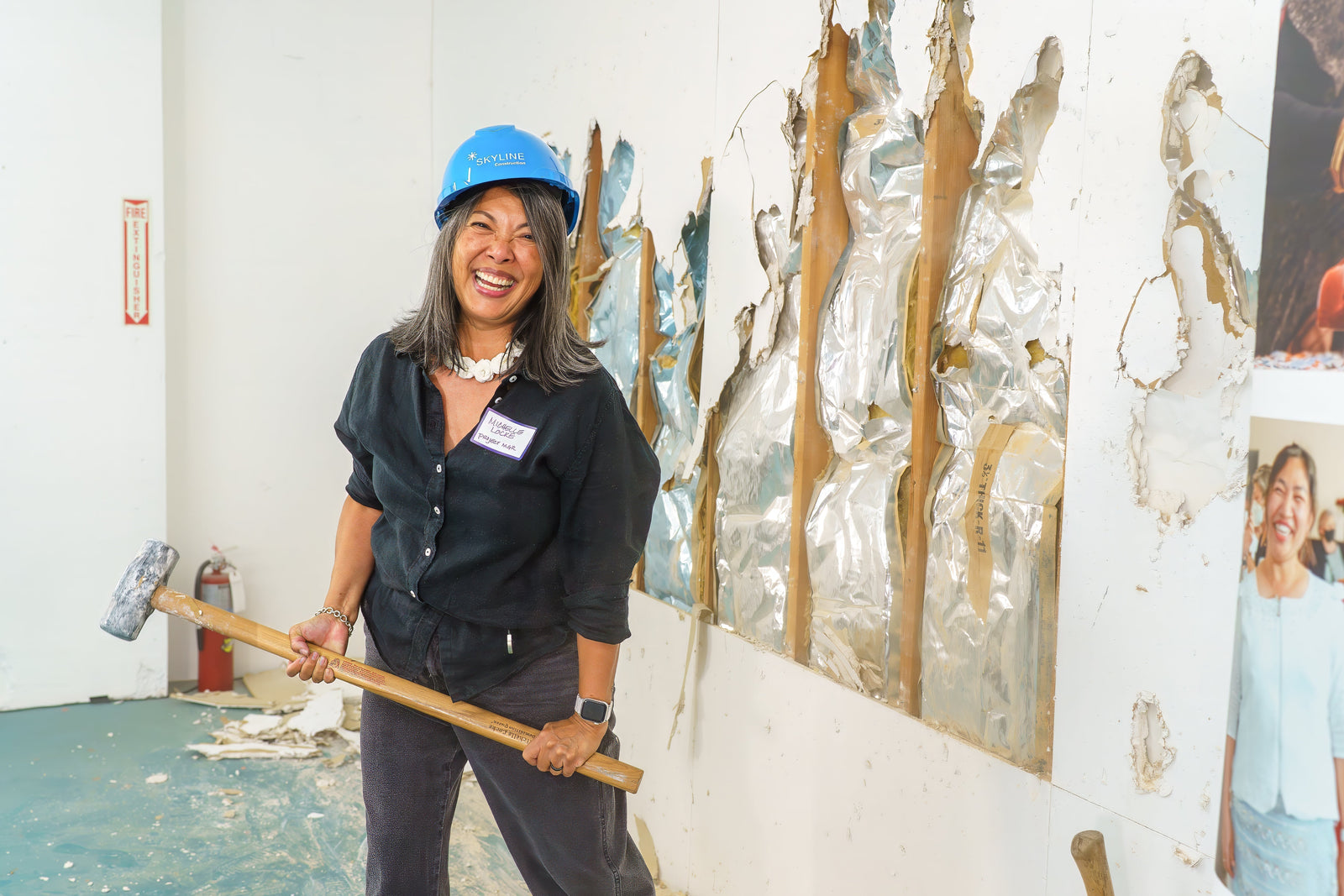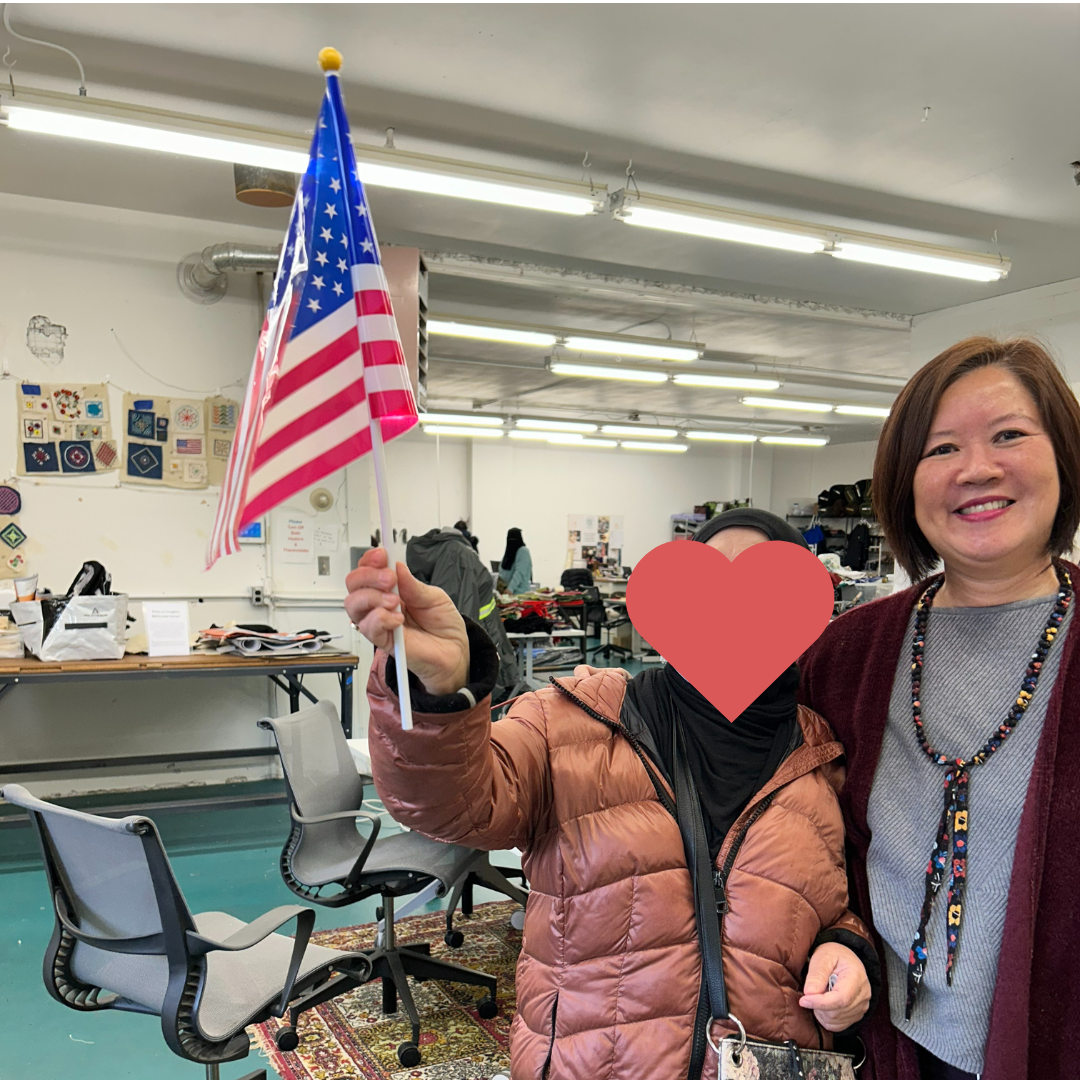Seattle refugees turn junk into tote bags, medical scrubs and dog toys
In a nondescript workshop in Seattle’s Lake City neighborhood, squeezed between a restaurant and a convenience store, surplus bed sheets are sewn into medical scrubs, used coffee sacks are fashioned into burlap tote bags and decommissioned fire hoses are cut into storage baskets.
Refugee and immigrant women from countries like Afghanistan, Myanmar and Ethiopia are trained to do the work, which Refugee Artisan Initiative Executive Director Ming-Ming Tung-Edelman calls “upcycling” — transforming waste materials into products with practical and artistic value, rather than keeping them in warehouses and dumping them into landfills.
“You see that stack of napkins?” Tung-Edelman asks, pointing past a dozen sewing machines toward a table piled with colorful linen triangles. “Deadstock fabric, left over from a Tommy Bahama clothing line.”
The nonprofit that Tung-Edelman started in 2017 provides the artisans with new skills, a special community and the means to earn a paycheck from home, earning $20 an hour for piece work.
Read the entire Seattle Times article here.
